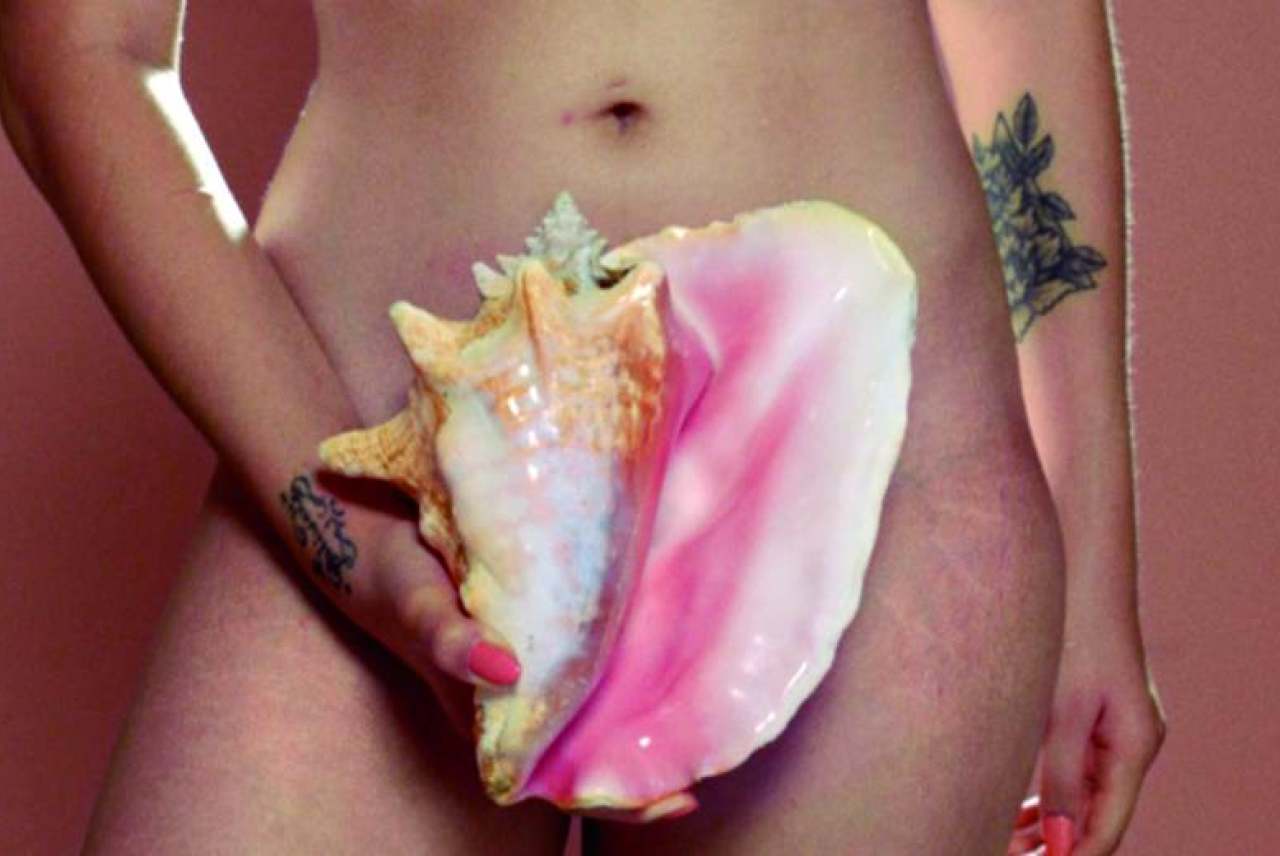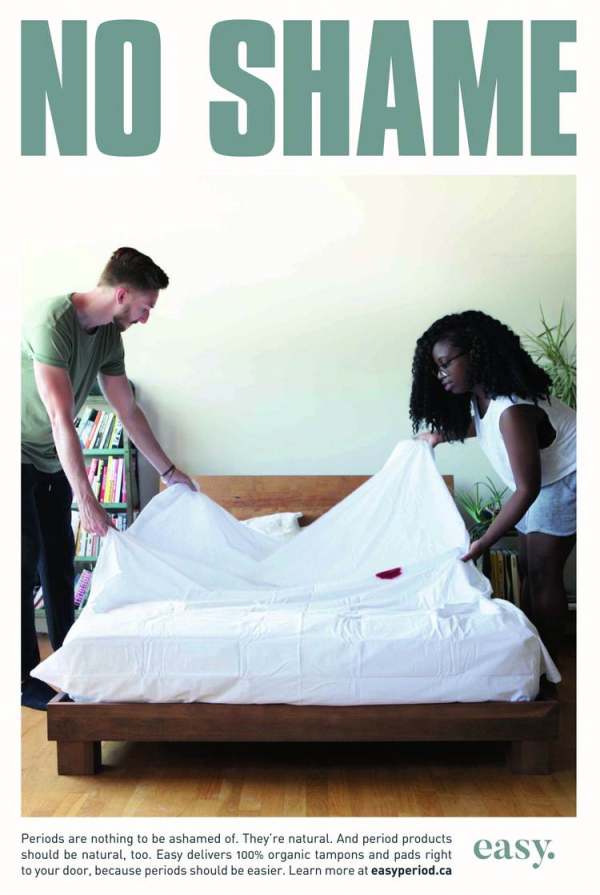This stigma can inhibit open discussions about the different, and less damaging, menstrual products out there. It can also have other adverse effects such as poorer menstrual health, including impacts on mental health and wellbeing.
The problem with marketing
Companies selling menstrual products are often a key source of information about periods. This means the way they market their products can have quite a big influence on how we view menstruation.
In 2007, advertisers were still using blue liquid to demonstrate absorbency compounding the idea that periods were unsightly and needed to be presented in a clinical and sanitised form.
Some companies, such as Tesco, are still using the term ‘sanitary protection’ which, as one of our subscribers kindly pointed out, is unhelpful because periods are not unsanitary, and we don’t need protecting from them.
There is also a big emphasis on being discreet. For example, Tampax has a whole blog on ‘How to use a tampon discreetly’ seemingly aimed at teenagers. It states, “Be discreet when bringing a tampon into the school toilet, but have fun with it, too. Challenge your friends to come up with the best hiding spots ... like, try tucking it in your bra or sock. Just make sure it’s secure – you don’t want it falling out onto the floor on your way down the corridor!”
Obviously, it is fine for anyone to not want people to know they are on their period. However, for many, it might be liberating not to feel like they have to hide their menstrual products.






